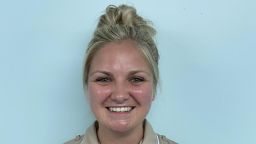Student Nursing Associate apprenticeship
This accredited Nursing Associate foundation degree programme covers all four fields of nursing: Adult, Mental Health, Learning Disabilities and Child. The two-year course is split into work-based learning and "off-the-job" learning.

Programme description
Programme lead: Judith Sephton
Intakes: March and October
This accredited foundation degree programme covers all four fields of nursing: Adult, Mental Health, Learning Disabilities and Child.
The two-year course is split into work-based learning and “off-the-job” learning (university study days and alternative placements). Over the two years you will complete 3,000 hours of learning.
As a Student Nursing Associate, you will experience placements in each of the three health and care settings: hospital, at home, and close to home settings. Your primary placement, where you are employed, will be based in one of these training contexts but you must have experience of at least one other placement in each of the other settings. The learning environment in all placements should provide and facilitate learning activities so you can achieve the stated learning outcomes of the course.
The University of Sheffield offers outstanding and creative teaching. Our Clinical Educators will provide a supportive link between your work-based learning and academic studies.
We work closely with the Royal College of Nursing to explore how education meets the needs of the NHS workforce. This means that we're ideally placed to offer you a high-quality course, informed by the latest clinical research in the field.
We constantly receive excellent communication from the university in relation to the Student Nursing Associate (SNA) apprenticeship. Sophie, the educator from the University of Sheffield, provides an excellent support system for all our current SNA's. She is always there to answer any queries we have and gives great pastoral support. The University of Sheffield supports us very well with the recruitment of cohorts.
Sarah Butcher
Sheffield Children’s Hospital
Accreditation and the apprenticeship standard
This programme is approved by the Nursing and Midwifery Council (NMC). It will give you the clinical skills and knowledge you need for entry into the NMC professional register as a Nursing Associate.
It also meets the nursing associate standard defined by the Institute for Apprenticeships and Technical Education.
About the nursing associate standard
Duration
Two years, full time.
Teaching
Study days take place on campus at the University of Sheffield. These include taught sessions and various learning activities (workshops, group and individual tutorials, guided study, and online resources).
The two year degree is divided into four units:
- Unit 1: Foundations in Health for Student Nursing Associates (60 credits)
This Unit will lay the foundations for the many core skills, attributes and values required for contemporary nursing associate practice. It offers students a broad and applied introduction to the study of nursing and its practice through the lifespan, within contemporary health and social care. Students will begin to access the evidence base for nursing associate practice and engage and reflect on its application through supervised practice within a multidisciplinary team. Students will be introduced to work with people from different fields of practice: mental health, learning disability, mother and child, adult and child fields of nursing in the context of nursing associates.
Learning outcomes
1. Demonstrates knowledge of the meaning of being an accountable, professional nursing associate with a duty of care to others.
2. Describes the role of the nursing associate in person-centred care, within the context of the multidisciplinary team
3. Demonstrates knowledge of anatomy and physiology to underpin safe practice.
4. Demonstrates the ability to reflect on own communication skills and development needs.
5. Achieve the clinical practice standard required for this unit.Assessment
- Practical communication assessment with accompanying written summary of 1000 words
- A 1000-word reflection based on an alternative field of nursing
- A formative health numeracy calculation test
- Completion of Practice Assessment Documentation- Unit 2: Developing Student Nursing Associate Practice: Caring for People with acute and short-term needs (60 credits)
This Unit will continue to develop the knowledge, skills and professional values required for contemporary nursing associate practice by offering students an applied introduction to the nursing associate role by focussing on people who have acute and short-term needs. It further enables students to acquire a holistic core knowledge and skills base that underpins the theory and practice of safe nursing and the contribution of nursing associates within multi-disciplinary/multi-agency practice.
Learning outcomes
1. Demonstrate knowledge of anatomy and physiology to underpin safe practice.
2. Understand the safe use and action of medications.
3. Application of knowledge of the role of the nursing associate in the provision and monitoring of people and shared decision-making within the multidisciplinary/multi-agency team.
4. Demonstrate safe and effective use of risk assessment and communication skills.
5. Achieve the practice standard required for this unit.Assessment
- A structured clinical examination based on a simulated scenario of an acutely ill deteriorating patient.
- A 1000 word reflection based on an alternative field of nursing.
- A pre-recorded presentation of a drug.
- Completion of Practice Assessment Documentation.- Unit 3: Developing Student Nursing Associate Practice: Caring for people with long-term and complex needs (60 credits)
This unit is designed to enable students to further develop their nursing skills and professional attributes whilst focusing on those with long-term and complex needs. Students will explore the wider aspects of health and illness and issues which impact upon them. They will seek to understand the unique needs and experiences of adults and their families living with long-term conditions, and the significance of multi-agency collaboration across the health and social care sectors. This will be achieved by drawing the students’ attention to current policy, practice and research. In addition psychological, physiological and sociological perspectives are explored. The unit will develop an understanding of the importance of user/ carer expertise in healthcare decision making.
Learning outcomes
1. Explore the nursing associate’s role in promoting and protecting health, preventing ill-health and discuss factors that may lead to inequalities in health outcomes.
2. Discuss the role of the nursing associate in multi-agency collaboration and integrated care across the health and social care sectors when caring for patients with long-term and complex conditions
3. Demonstrate understanding of the importance of user/ carer expertise in healthcare decision-making and the personalisation of healthcare.
4. Discuss best practice approaches to communication for managing complex and long-term care needs; providing health information and checking understanding
5. Demonstrate health numeracy to underpin safe practice.
6. Achieve the practice standard required for this unit.Assessment
- A health numeracy calculation test that requires 80% or above to pass
- A 1000 word reflection based on an alternative field of nursing
- A presentation and an educational resource
- Completion of Practice Assessment Documentation- Unit 4: Transition to Professional Nursing Associate Practice (60 credits)
This final unit is undertaken prior to admission to the NMC register upon successful completion. This practice-focused unit will consolidate learning of all Nursing Associate apprenticeship/NMC standards and facilitate students to seek out and utilise evidence-based principles which underpin safe and professional nursing interventions as they transition into autonomous and accountable nursing associate practitioners. It offers a critical examination of the fundamental and specialist knowledge, skills and attitudes required of the nursing associate and examines the nature of the nurse associate’s contribution in effective multidisciplinary care.
Learning outcomes
1. Demonstrate proficiency and accuracy when calculating dosages of prescribed medicines
2. Explore concepts and practice of patient safety, personal safety and coherently communicate findings.
3. Consider the role of the nursing associate as an ambassador, coach, supervisor, and professional role model.
4. Achieve the clinical practice standard required for this unit.
5. Complete “End-point-assessment”Assessment
- A 1000-word reflection based on an alternative field of nursing
- A 2500-word research risk assignment
- A formative health numeracy calculation test with a 100% pass mark required
- Completion of Practice Assessment Documentation
Assessment
Each unit includes multiple assessments. At the end of your two years, you will complete an End Point Assessment (EPA). Passing this allows you to qualify and practise as a Nursing Associate.
Our facilities
As an apprentice at Sheffield, you’ll benefit from an excellent study environment across both our main campus and our Clinical Skills Centre.
Our Clinical Skills Centre is based at the Northern General Hospital, a large teaching hospital and Major Trauma Centre. The centre contains mock clinical wards, resuscitation suites, simulated theatres and teaching rooms – perfect for training the next generation of healthcare professionals.
Find out more about our Clinical Skills Centre
Student profiles
Read more student testimonials
Entry requirements
- Employment within a partnership organisation who will support your apprenticeship for a minimum of 30 hours per week.
- Certified evidence of English Language GCSE grade C/4 or above, Functional Skills Level 2 or a university accepted equivalent.
- Certified evidence of Maths GCSE grade C/4 or above, Functional Skills Level 2 or a university accepted equivalent.
- International qualifications: evidence from UK ENIC of equivalent English/Maths (A*-C) must be provided for international qualifications.
Other requirements
Disclose and Barring Service (DBS)
You will be required to have a DBS enhanced (including children) within the last 3 years.
Digital learning technologies
Student nursing associate students are required to demonstrate the ability to use digital technology prior to commencing the SNA programme. Once you are appointed you will be given a link to a free digital learning and testing site where you will complete the "basic computer skills" package and submit the certificate as evidence.
Interviews
Recruitment, shortlisting and interviews will be organised by the employing partnership with support from the University and service users.
Apply
This programme is advertised locally in partnership organisations and application is via their recruitment processes, such as NHS jobs. The University does not recruit directly for the course.
Your employer can submit an expression of interest for this apprenticeship by contacting ahpnm-apprenticeships-admissions@sheffield.ac.uk for a copy of our Expression of Interest form.



